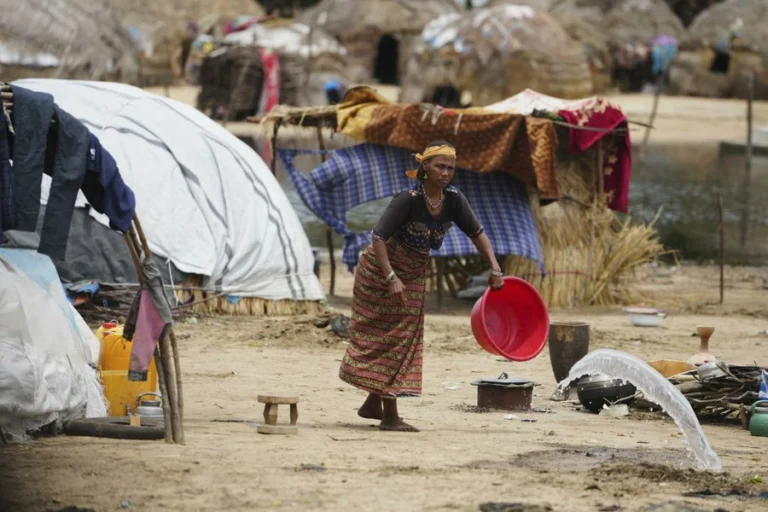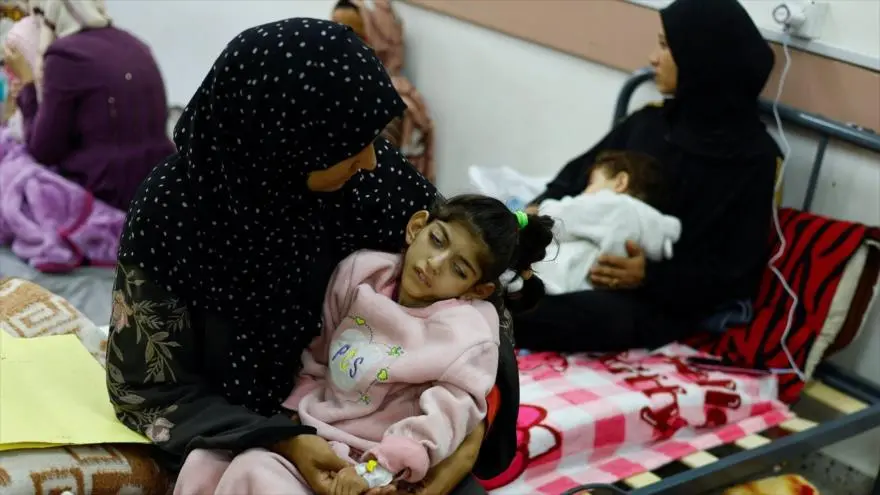WFP Warns of Worsening Hunger Crisis in Nigeria Amid Aid Cuts
Over 30 million Nigerians face hunger amid steep aid cuts, with WFP warning of rising instability across the Sahel.

Millions across West and Central Africa face worsening hunger as international food aid declines. Photo: @UKWELITIMES
July 25, 2025 Hour: 6:47 am
The UN’s World Food Programme warns that funding cuts — led by the United States and followed by other Western donors — are pushing millions in Nigeria and the wider West African region to the brink of famine, raising fears of broader instability.
RELATED:
Congo, Rwanda and UNHCR commit to speeding refugee returns
The United Nations World Food Programme (WFP) has issued a warning about a worsening hunger crisis in Nigeria, where nearly 31 million people are now facing acute food insecurity. “This is equivalent to the entire population of Texas going hungry,” said Margot van der Velden, WFP’s regional director for West Africa.
Due to significant funding cuts expected from August, WFP says over 1.3 million people in Nigeria will lose access to food and nutritional aid. In the northeastern state of Borno — a region severely affected by years of conflict — 150 nutrition clinics may shut down, placing 300,000 children at risk of severe malnutrition and leaving 700,000 displaced people without any means of survival.
The crisis reflects a broader decline in international support. For years, the U.S. Agency for International Development (USAID) played a central role in humanitarian operations across northeastern Nigeria. However, foreign aid cuts under the Trump administration, followed by reductions from other Western governments, have severely undermined assistance programs. The WFP is now urgently seeking \$130 million to sustain its work in Nigeria alone.
But the challenge extends beyond Nigeria. Across West and Central Africa, food insecurity is rising while donor support continues to shrink. “WFP’s aid has dropped by 60%, now reaching only 5 million people, with Mali and Niger suffering cuts of over 80% in emergency support,” van der Velden said.
The agency’s latest funding figures show a deep gap between needs and resources: Cameroon’s appeal is just 19% funded; Mauritania 39%; Central African Republic 49%; Mali 57%; and Niger 74%. In each case, communities already facing climate shocks, inflation, and conflict are now also confronting the collapse of food assistance.
The underlying drivers of the crisis in Nigeria include depleted household food stocks, rising food prices, inflation, currency depreciation, and persistent insecurity — compounded by what WFP calls “unprecedented funding cuts.”
Van der Velden cautioned that the erosion of food aid is not only a humanitarian issue but also a threat to stability. “When there is no food aid, hunger deepens and tensions rise. Communities fracture and the risk of instability increases, making it more difficult to maintain peace and resilience in the region,” she said.
Without immediate funding, WFP warns that millions in Nigeria and across the Sahel may fall deeper into crisis. As wealthy nations scale back their commitments, vulnerable populations in the Global South are left to face the consequences of decisions made far beyond their borders.
Author: MK
Source: Africanews




